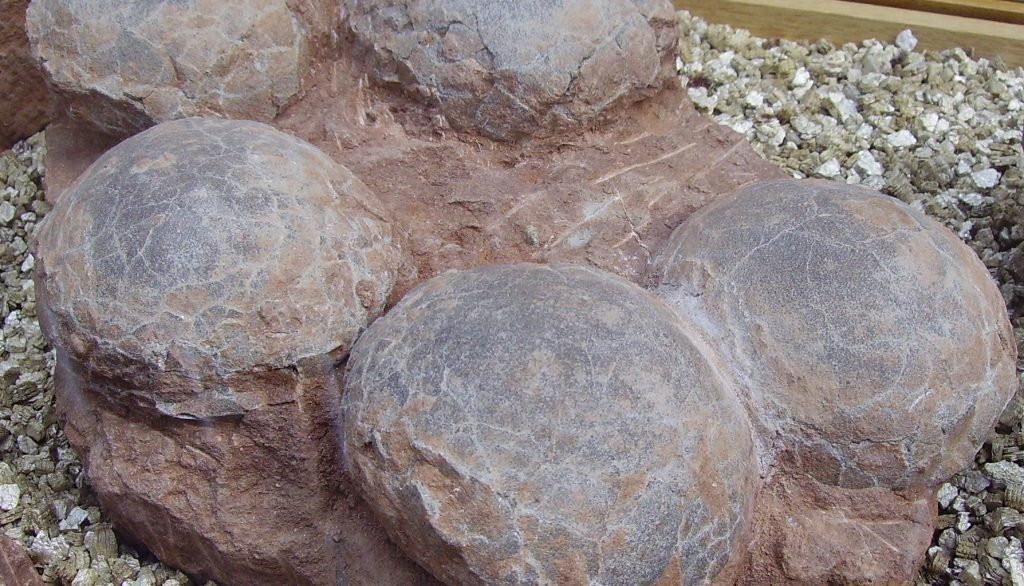Researchers have discovered the first known dinosaur nesting site in Japan after uncovering a tennis court sized patch of rock that has yielded 90 different pieces of fossilized dinosaur eggs from five separate dinosaur species.
Although similar sites have been found all over the world and there have fragments found from individual dinosaur eggs in Japan before, this is the first evidence of a whole nesting site there.
The country’s geology and volcanism has compressed ancient rock layers making fossilized eggs hard to distinguish.
Darla Zelenitsky, a paleontologist at the University of Calgary said “It is difficult to find fossil eggshell fragments in Japan because the rock is so hard and needs to be broken apart manually.”
Fossil hunters led researchers to a riverside site in southern Japan in 2006 and since then it has yielded the remains of ancient lizards, mammals and frogs and a few , dinosaurs remains but no-one had expected it would contain evidence of a dinosaur nesting site.
Zelenitsky said the fragments came from 110-million-year-old eggshells from different dinosaurs. The majority of the eggs most probably came from meat-eating dinosaurs called theropods like the well known T-rex , but some are from the ornithopod species which were larger plant eating dinosaurs.
The theropod eggs were some of the tiniest ever discovered with researchers estimating their original weight must have been anywhere between one to five ounces.
One of Zelenitsky’s paleontology graduate students, Kohei Tanaka, who did the majority of analysis of the egg fragments said they would enable researchers to piece together a detailed story “about the evolution, reproduction, and biology of dinosaurs in this region.
Using very powerful microscopes researchers can find structural patterns on the eggs giving them clues as to what species produced them.
Researchers now hope the site will reveal fully preserved nests.
Stay Connected